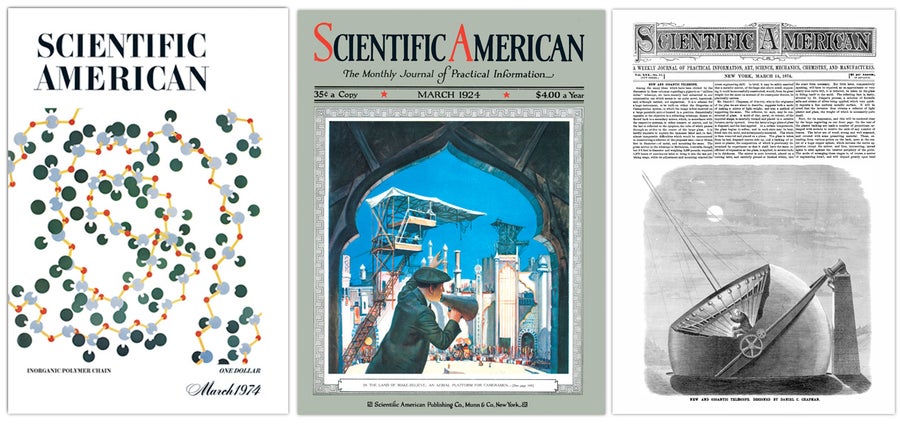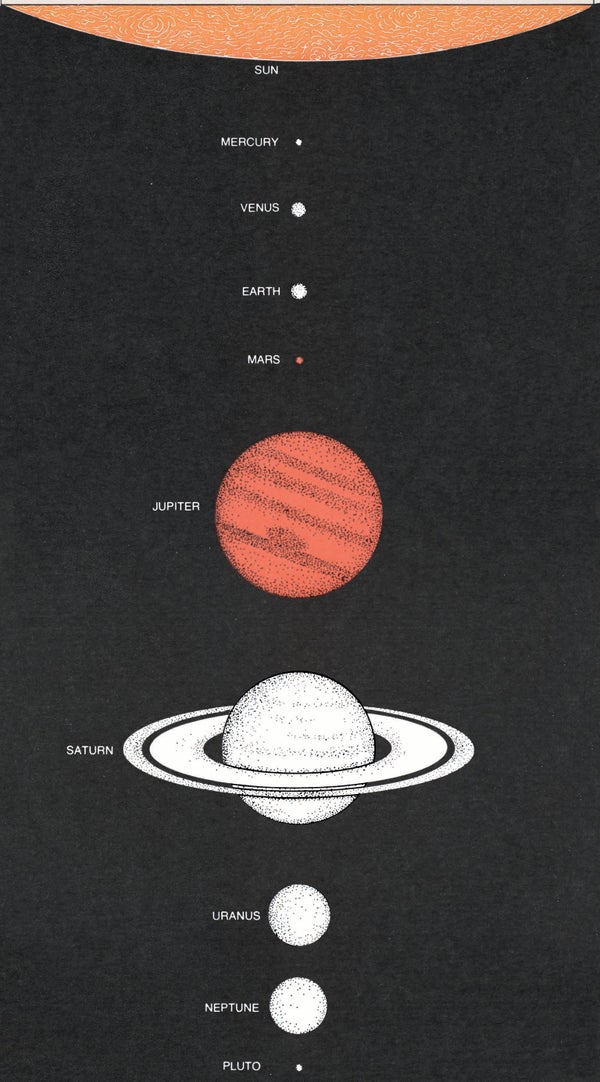1974
How Balanced Rocks Stay Upright
“A large rock balanced on a small protuberance is a wonder. In Goblin Valley in southern Utah there are more than 1,000. But how do the rocks stay balanced? Balanced rocks originate when a bed of sediments is dissected by erosion until a column is formed. If the strata at the top are harder than the strata farther down, erosion will whittle the softer rock to a pillar. So what keeps the capstone in place? Two investigators at Kansas State University suggest that when the capstone first begins to tilt, the point of contact to its pillar shifts, remaining under the capstone's center of gravity. Rock under the stress of compression is more resistant to erosion than unstressed rock, so thereafter the unstressed section will erode more rapidly than before. Successive tilts in other directions will stress successive sections of the pillar, and the differential erosion will make the process self-leveling. The capstone will remain poised on the pillar until the inevitable day when the area of contact becomes too small for the self-leveling to continue, and the balancing rock crashes satisfyingly to the ground.”
On supporting science journalism
If you're enjoying this article, consider supporting our award-winning journalism by subscribing. By purchasing a subscription you are helping to ensure the future of impactful stories about the discoveries and ideas shaping our world today.
Reactor Rush
“At the end of 1973 the U.S. had 42 operable [commercial] nuclear reactors, according to the Atomic Industrial Forum Inc. It also counts 56 reactors under construction, 101 under firm order and 14 ‘under letters of intent or options.’”
After the 1979 Three Mile Island accident in Pennsylvania, utilities canceled more than 50 reactor orders from 1980 to 1984. The 1986 Chernobyl accident in Ukraine hurt prospects further.
1924
Absolutely Tremendous
“There is fashion in words, as in clothes. Not long ago ‘absolutely’ had its run. Where the simple ‘yes’ would have served, the interrogee would say ‘absolu-u-u-tely,’ that lute-like third syllable held with evident relish. Today writers seem to feel that if an article is not freely sprinkled with ‘tremendous,’ it will be wanting in ‘pep.’ Recently we came across a technical article—compact, well expressed and informing—in which the author used ‘tremendous’ no less than nine times. Surely the author is not so tremendously full of inspiration that he must use nine tremendous relief valves to let it all out.”
A Pension for Curie
“The twenty-fifth anniversary of the discovery with which Madame Curie's name is connected was dignified by the payment to Madame Curie of the first installment of a pension voted her by the French legislature, in recognition of her scientific achievements. It is interesting to quote the modest title under which her discovery was announced on December 26, 1898: ‘A note, by Monsieur and Madame P. Curie and Monsieur G. Bemont, upon a new radioactive substance found in pitchblende.’ This substance, of course, was radium.”
The Molasses Gasoline Test
“It has been discovered that molasses is extremely useful for detecting the presence of water in tanks of gasoline. Water is heavier than gasoline and will always sink to the bottom. A wooden stick is coated with molasses and is pushed down into the tank. The gasoline does not affect the molasses in any way, but when water is encountered, the coating comes away from the stick. When the stick is withdrawn it is not only possible to see whether water is present but the actual amount is plainly shown.”
1874
Hashish Users Addicted to Puns
“M. Naquet has lately been studying the physiological action of hachisch [hashish]. The extract of hemp seed (Cannabis indica) administered to various persons produces a great exuberance of ideation; it is not new ideas but the exaggeration, amplification and combination of ideas which pre-existed in the person's mind. Hachisch produces one curious effect (which is also observed in acute mania)—a singular inclination to make puns and plays on words.”
Cough Suppressant
“Coughing can be stopped by pressing on the nerves of the lip in the neighborhood of the nose. Sneezing may be stopped by the same mechanism. Pressing also right in front of the ear may stop coughing. Pressing very hard on the top of the mouth inside is also a means.”

